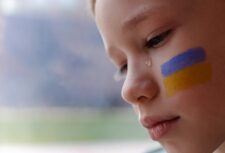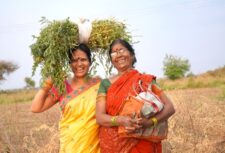Disclaimer: This article is more than 15 years old, and may not include the most up-to-date information or statistics. Please verify information with more recent sources as needed, and if you have any questions contact our Press Office.
18 December 2008
Call to end culture of criminalising trafficking victims
Anti-Slavery International welcomes the Government’s ratification of the Trafficking Convention yesterday evening (17 December 2008) but warns that there must now be an end to the culture of treating trafficked people as criminals rather than the victims of serious crime.
By ratifying the Council of Europe Convention on Action against Trafficking in Human Beings the Government is now committed to providing minimum standards of protection and assistance to trafficked people. However, concerns remain on how the requirements of the convention will be implemented in practice.
Klara Skrivankova, Trafficking Programme co-ordinator for Anti-Slavery International, the world’s oldest human rights organisation, said: “While the decision to ratify the convention is an important step in the right direction, for the Government to live up to its anti-trafficking commitment it must take steps to shift the general culture that exists among many authorities, which views trafficked people as illegal immigrants rather than the victims of serious crime.
“The ratification of the treaty should bring an end to the detention and deportation of trafficked people, however, our concern is that the treatment of trafficked people will not improve until there is an end to this engrained attitude.
“The Government should now also focus on the issue of forced labour and ensure that assistance and protection is available also to those trafficked to work in our factories, farms and even homes.”
Anti-Slavery International estimates that at least 5,000 people are trafficked to the UK both for sexual as well as labour exploitation. Human trafficking is the movement of people from one place to another using violence, coercion or deception for the purpose of forced labour or sexual exploitation.
The ratification of convention means the UK will be obliged to take active actions to prosecute traffickers as well as to apply a range of measures to promote and protect the rights of trafficked persons. These measures should ensure that:
- a mechanism is in place to accurately identify trafficked people.
- the granting of a 45 day reflection period, and the offering of assistance and protection, while trafficked people decide whether or not to cooperate with the law-enforcement agencies.
- access to redress, including compensation.
NOTES TO EDITORS:
- Anti-Slavery International is the world’s oldest human rights organisation and campaigns for the eradication of slavery, exposing current cases, supporting local organisations to release the minimum 12.3 million people in slavery, and the implementation of international laws against slavery.
- For further information please contact Paul Donohoe, Anti-Slavery International’s Press Officer, on 020 7501 8934 / 07896 783 297 or email p.donohoe@antislavery.org





